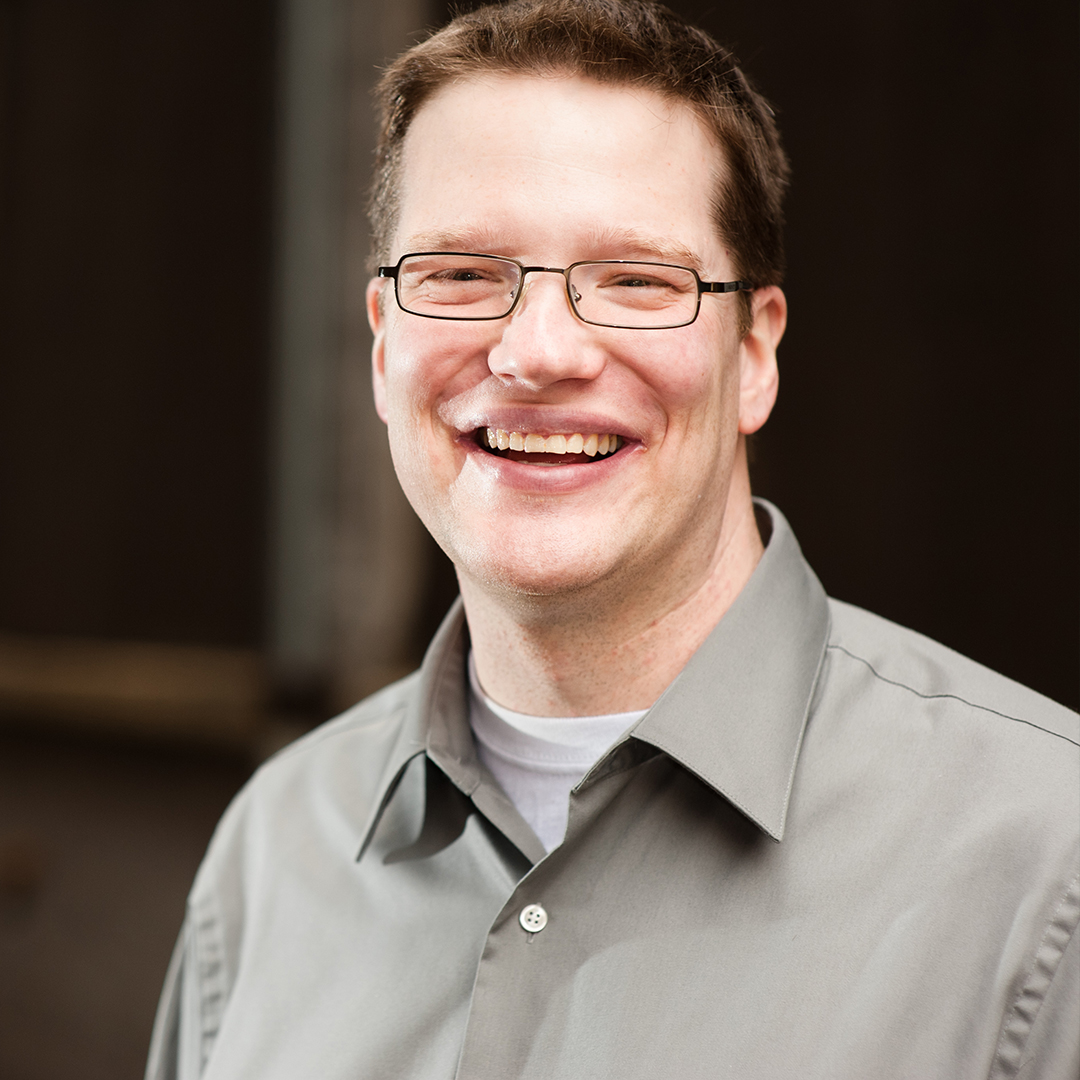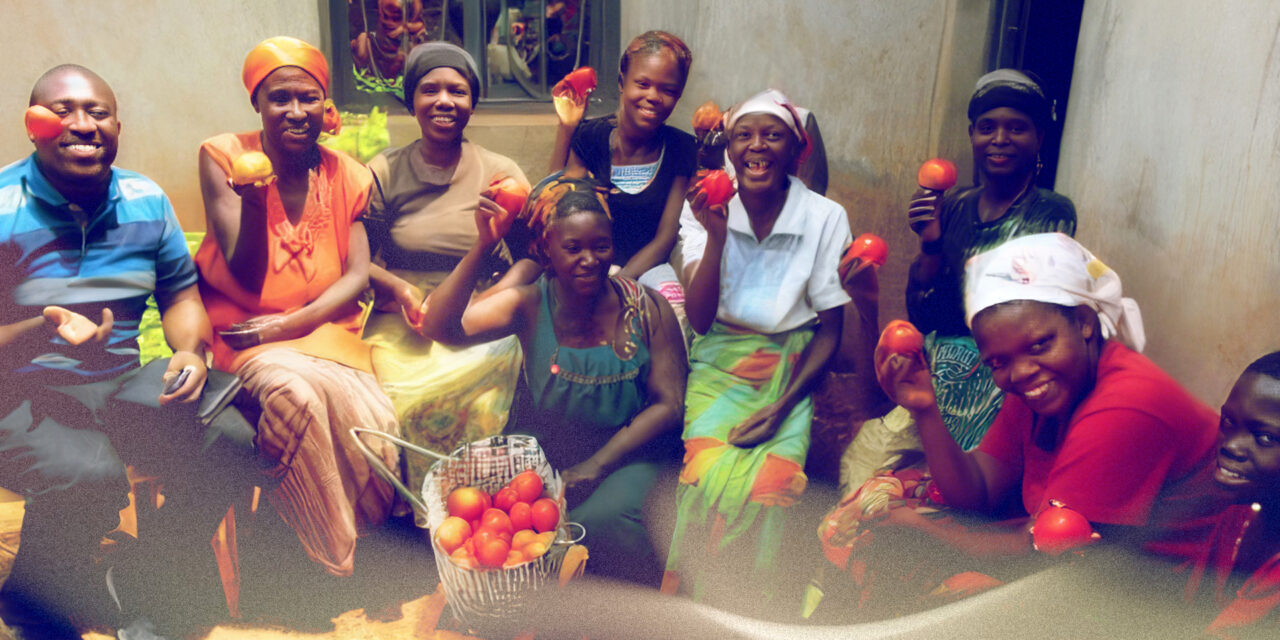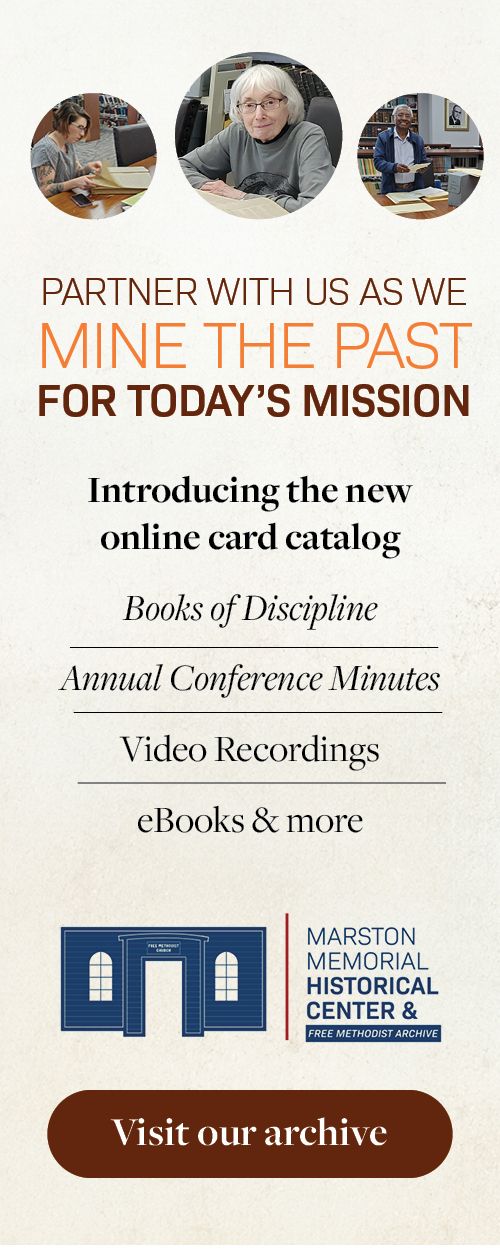By Jeff Finley
Community development expert John McCready was born in one of the world’s poorest countries — the east-central African nation of Burundi — where he spent the first 10 years of his life. He has since lived in the United States and Canada where he devoted himself for decades to cross-cultural health and social service efforts before using his expertise in recent years to help students and young adults in the land of his birth.
“The best example about what I think helped to lead me back to Burundi was that for a while I did quite a bit of work with First Nations people,” McCready said in an interview with Light + Life. “Our native population, they’re somewhat dependent on the federal government, but they’re somewhat militant about the fact they want to control their own destiny. They want to be self-governing.”
McCready majored in social science while earning a Bachelor of Arts degree from Spring Arbor University in Michigan. He later earned Master of Social Work and Doctor of Philosophy degrees from the University of Toronto.
His professional career has included working as a social worker at a psychiatric hospital, as an assistant director of the Addiction Research Foundation, and as the principal of Healthy Horizons Consulting. As he worked to help other people in North America, he reflected on his childhood in Africa and decided “after many years of being away, I’d like to go back and see Burundi. I’d like to see where I lived. I’d like to see where I went to school.”
Despite his professional background, McCready knew that he didn’t have all of the answers about what could improve conditions in Burundi, and other people failed or made things worse when they thought they knew how to solve the country’s problems.
“I’ve been involved in community development work all of my career, but I had even sensed when I was 10 years old when I left Burundi, that there are some methods and some activities that really aren’t all that great for places like Burundi,” McCready said. “The idea that somehow I would know what’s good for Burundi is a little bit distasteful to me and a little bit unethical.”
He also knew the country had experienced many changes and difficult periods in the decades he had been away.
“There had been some terrible massacres and war,” said McCready, who added that Burundi is a “small, densely populated, high birth rate country with a very young population of 13 million people.”
_
“Haley wanted to build an indigenous church that would be self-supporting, self-propagating, and self-governing.”
_
Hope for Young Africans
McCready turned to an expert on Africa and the global church for guidance.
“I got in touch with Bishop [and former missionary] Gerald Bates and said, ‘Look, I’m going to Burundi, and I don’t want to just get there and be lonely and not have anyone to talk to. If I thought I needed some help in making my trip successful, who do you think I should contact?’”
Bates put him in touch with Elie Buconyori, who served at that time as the rector of Hope Africa University and the bishop of the Free Methodist Church in Burundi. Buconyori invited McCready to teach at the university and suggested he develop what is now known as the Haley McCready Outreach and Development Fund to support students and graduates with development projects. McCready’s grandparents, John Wesley Haley and Jennie (Hamilton) Haley, were the first Free Methodist missionaries in Burundi where they served from 1935 to 1946. His parents, Burton McCready and Dorothy (Haley) McCready, served as missionaries in Burundi from 1939 to 1946 and from 1949 to 1956.
John Wesley Haley tried to avoid how missionaries and the church operated elsewhere in Africa. In establishing the church in Burundi (a colony of Belgium at the time), Haley wanted to build an indigenous church that would be self-supporting, self-propagating, and self-governing.
“In 1935 and in a Belgium colony, the notion of building an indigenous church or an indigenous organization was an exceedingly radical, edge-cutting idea,” John McCready said. “John Wesley Haley was very successful. The Free Methodist Church of Burundi is an indigenous church and has many, many more members than the Free Methodist Church in all of North America.”
_
“I think agriculture development is as valuable — or maybe even more valuable — than ministries related to health and education.” – John McCready
_
Working in association with the university and the church, the fund provided its first development investment grants in 2011. The fund now focuses on agriculture development with 547 beneficiaries and 48 projects in 10 provinces and 21 communes in Burundi. Through microfinancing, the projects provide the beneficiaries with repayable loans for personal income-generating activities.
“I think agriculture development is as valuable — or maybe even more valuable — than ministries related to health and education,” McCready said. “I think agriculture is an important area to pursue, — in addition to pursuing salvation, education, and health — in a country that’s challenged with hunger, famine, and malnutrition. More than half of the children in Burundi are chronically malnourished, and so to me, that’s a real calling card to try to serve people in the same way that I believe Jesus took interest in people’s physical needs.”
He noted that the Bible includes stories of God providing food for people, and he added, “I think we can do well to use the Bible as a way by which we decide what to do.”
According to McCready, Burundi is an agrarian country with more than 90% of the population living in rural areas as community farmers with small, overworked, hand-cultivated plots, using low production and traditional methods.
Any Hope Africa student or graduate can submit a project proposal for a onetime, start-up grant from the Haley McCready Outreach and Development Fund for which John McCready serves as the program director. Using the principles that his grandfather used in developing the indigenous church, the development projects are designed to become self-supporting, self-managing, self-governing, and self-sustaining. Most of the project beneficiaries are poor and vulnerable women who are organized into a self-help association and involved in crop cultivation, animal husbandry, and microfinancing.
_
“I envision a day where the university and the church could have regional centers where they had farms, and they teach people how to do the farming — students as well as community people.” – John McCready
_
Investing in the Next Generations
In his lifetime, McCready has seen Burundi change from a country with mostly Europeans — typically Belgians — working in management of banks and stores to Burundians running their own businesses and institutions.
While Burundi remains a poor country with mostly rural residents, it is experiencing technological change along with other countries. Few people can afford landline telephones, but cell phones are becoming increasingly common in the countryside.
“They’re very basic ones most of the time, but increasingly people are going to smartphones and even laptops,” McCready said.
He estimated that only 10% of the population has electricity, but during his visits to Burundi in recent years, he has seen advancements in access to water, electricity, and the internet with Hope Africa University helping to lead the way.
McCready has a mission of investing in the young people of Burundi, and he isn’t planning to spend his retirement years relaxing.
“I don’t see that I’m going to be attracted to my hammock in the backyard. I think it would be the end of me if I had to get up every morning, read the paper, and go to the backyard to my hammock,” he said. “I need something to do that I think is socially redeeming, and I think my purpose is to try to contribute something beyond myself.”
Hope Africa University has a mission of developing “African solutions for African realties,” and the fund is investing in that effort.
“I envision a day where the university and the church could have regional centers where they had farms, and they teach people how to do the farming — students as well as community people,” McCready said. “They would use that as a way of starting projects that would go back into their own communities to continue with their work.”
Along with continuing the agriculture development work, McCready wants the fund to start more new projects each year to increase connections with the university’s agriculture program graduates who can visit the fund’s agriculture development projects frequently and help community farmers learn to use more productive methods. Donations are needed to make those plans a reality.
Click here for information about supporting the Haley McCready Outreach and Development Fund.
+

Jeff Finley is this magazine’s executive editor. He joined the Light + Life team in 2011 after a dozen years of reporting and editing for Sun-Times Media. He is a member of John Wesley Free Methodist Church in Indianapolis.











